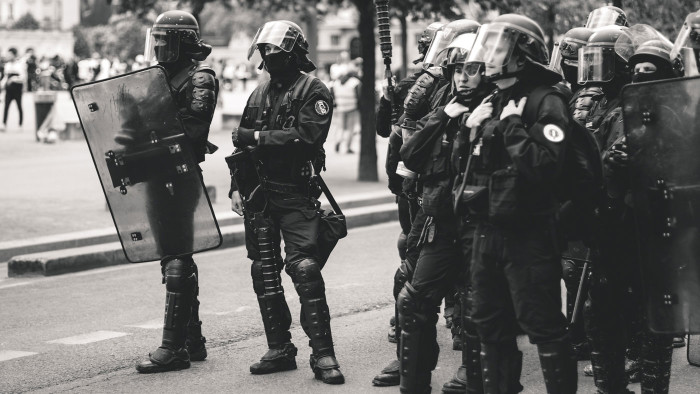
Brothers Boubacar and Fadjigui were just 25 and 31 years old when they were shot dead by a trainee police officer in Paris at the end of April. The killing took place during car search and the police officer has since been charged with, ‘intentional homicide’. In Germany, the Mannheim prosecutor is investigating two officers after a man living with mental health issues died after police were called to ‘help’ him.
These deaths, just a week apart, in two different European countries, are further evidence that we need transformative change in policing, and we need it urgently. But EU policy and lawmakers continue to look into ways to ‘reform’ the police that are destined to fail, unless they take account of widely available evidence and calls from civil society urging them to acknowledge what is actually being said by the people and groups most impacted by violence and injustice at the hands of the system.1
Current policy discussions around policing at the EU level are fundamentally flawed from the outset. They build on a number of inaccurate assumptions – including that bias in law enforcement operates at the individual rather than structural level; that policing is disconnected from the wider criminal legal system; and that our societies need more policing in response to surging hatred towards marginalised groups.
It is not just down to Member States to introduce systemic change. The EU directly participates in the pursuit of a harmful security agenda, while avoiding responsibility for it. The EU border agency, Frontex is directly responsible for cracking down on search and rescue operations, and participating in pushbacks on helping people who are seeking asylum. The European Parliament voted just last week in favour of the expansion of Europol’s powers – the policing queen bee, that escapes all but window-dressing oversight while essentially empowering national police forces to harm our communities, by normalizing mass surveillance and exacerbating inequality. Data moved around with the help of Europol is actively used to strip people of their refugee status, deny them benefits, and detain them, often under ‘national security exceptions’ that cover up systemic racism and are impossible to defend.
At the same time, the European Parliament has ordered a study into police oversight that quite shockingly manages to minimise some of the most poignant and accurate demands of civil society in relation to policing as issues of perception. The solution? More data, more training, more accountability – all with the aim to improve public confidence in policing, without, in practice, actually changing a thing.
This approach unfortunately matches the pre-concluded security framing of the European Commission’s second anti-racism summit in March 2022, which confirmed Fair Trials’ concerns about the poor framing of law enforcement issues in the EU anti-racism action plan. The panel revolved around the need for more policing to keep us safe, more anti-bias training for the ‘few police officers who do not know what they’re doing is wrong’, and more police structures to hold the police accountable. Narrowing down on ‘rights-based’ policing as the goal, there was no room to question whether this would in fact address the inherent violence of policing, and the structural nature of bias within it.
The European Commission also fails to recognize that continued recourse to criminalisation, policing, and incarceration is a problem rather than a solution for minorities even though the harm perpetuated by this punishment-centric system is increasingly being denounced.
Pursuing failed policy options prevents social justice progress. It may not be easy for European institutions and civil society to question, de-construct and re-imagine long-held assumptions about crime, policing and punishment but it is necessary if we want to advance towards justice and equality for all.
For more on how EU policymakers should approach law enforcement reform, read our briefing The starting point for reform of policing in the EU.
[1] See, e.g., ENAR’s call to redefine instead of reform the police; Equinox’ call for alternative roads towards safety, equality and justice and a long-term vision of justice that is not centred around punishment.


